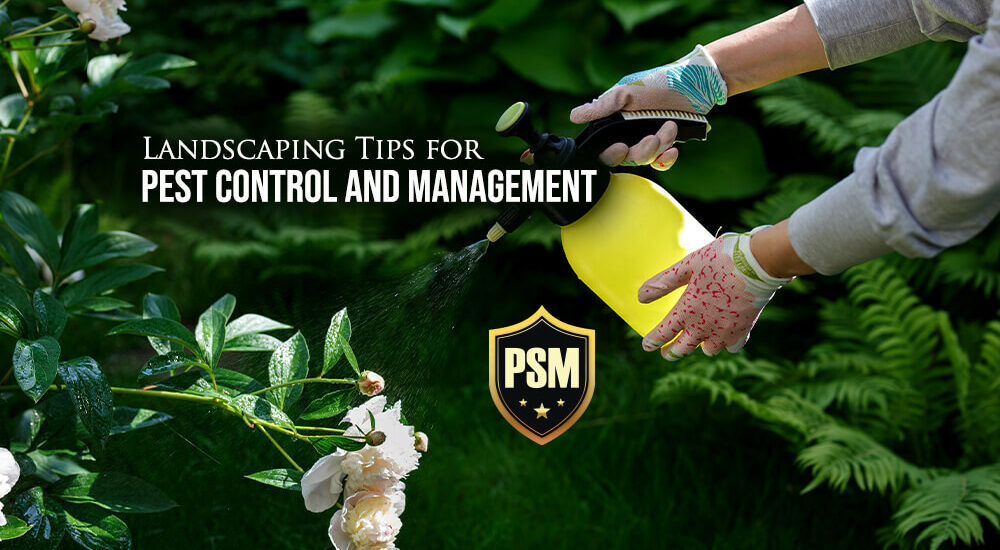- July 19, 2023
- Posted by: Ayman Anika
- Category: Investment Decision

Maintaining a beautiful and pest-free landscape is a priority for homeowners and garden enthusiasts alike. While pest infestations can be frustrating and detrimental to the health of your plants, there are several effective landscaping techniques that can help you prevent and manage pest problems. In this article, we will show you how you can create an environment that discourages pests and promotes a healthy and thriving landscape.
Plan and Design with Pest Prevention in Mind
When you design your landscape, you have to consider pest prevention from the outset. By implementing the following practices, you can significantly reduce the risk of pest infestations.
Proper Plant Selection
Select native plants and varieties that are known for their resistance to common pests in your area. Research the specific pest vulnerabilities of each plant species and choose those that are less likely to attract pests.
Diverse Planting
Create a diverse planting scheme to minimize the risk of pests spreading rapidly throughout your landscape. Monocultures are more susceptible to pest infestations since pests can easily move from one plant to another.
Companion Planting
Utilize companion planting strategies where certain plants are grown together to enhance natural pest control. For example, planting marigolds alongside vegetables can repel aphids and other harmful insects.
Maintain Proper Hygiene and Cleanliness
Regular maintenance practices play a significant role in pest prevention. By keeping your landscape clean and tidy, you can discourage pests from taking up residence in your garden
Prune and Remove Dead or Diseased Plant Material
Regularly remove dead branches, fallen leaves, and decaying plant matter. These provide breeding grounds for pests and can contribute to the spread of diseases.
Clean up Debris
Clear away garden debris, such as piles of wood or rocks, as they can serve as hiding places for pests.
Implement Natural Pest Control Methods
Employing natural pest control methods reduces the reliance on synthetic pesticides, ensuring a safer and more environmentally friendly approach.
Biological Controls
Introduce beneficial insects, such as ladybugs and praying mantises, to your garden. They feed on harmful pests, acting as natural predators and reducing infestation levels.
Attract Birds and Bats
Birds and bats are voracious insect-eaters and can be encouraged to frequent your landscape by providing nesting boxes, bird feeders, and bat houses. They can significantly reduce the population of flying pests like mosquitoes and gnats.
Use Organic Pest Control Products
If necessary, opt for organic pest control products derived from natural ingredients like neem oil, diatomaceous earth, or soap-based sprays. These can effectively control pests without harming beneficial insects or the environment.
Manage Standing Water
Eliminate areas of standing water, such as puddles or poorly drained areas, as they can become breeding grounds for mosquitoes and other pests.
Let Professionals Help You Out!
Creating a pest-resistant landscape requires a combination of preventive measures, regular maintenance, and sustainable pest control methods. Property Security and Management offers effective pest control methods, ensuring a pest free home and outdoor space for you.
For landscaping tips, our landscaping experts are also available to guide you. You can promote a healthy and thriving garden while minimizing the risk of pest infestations by calling 16604 or +8801711168473.
